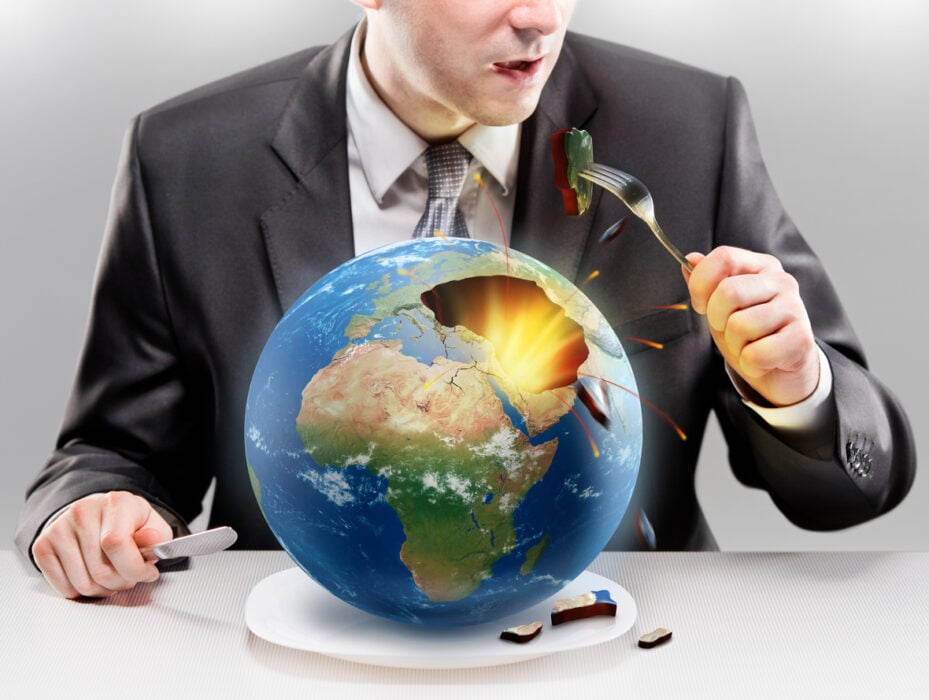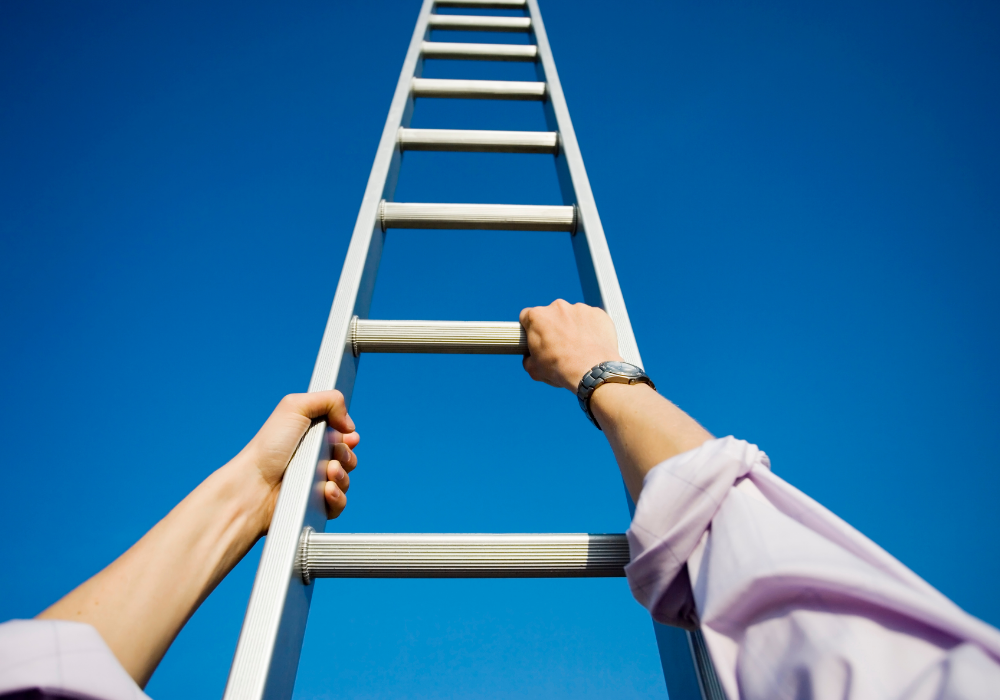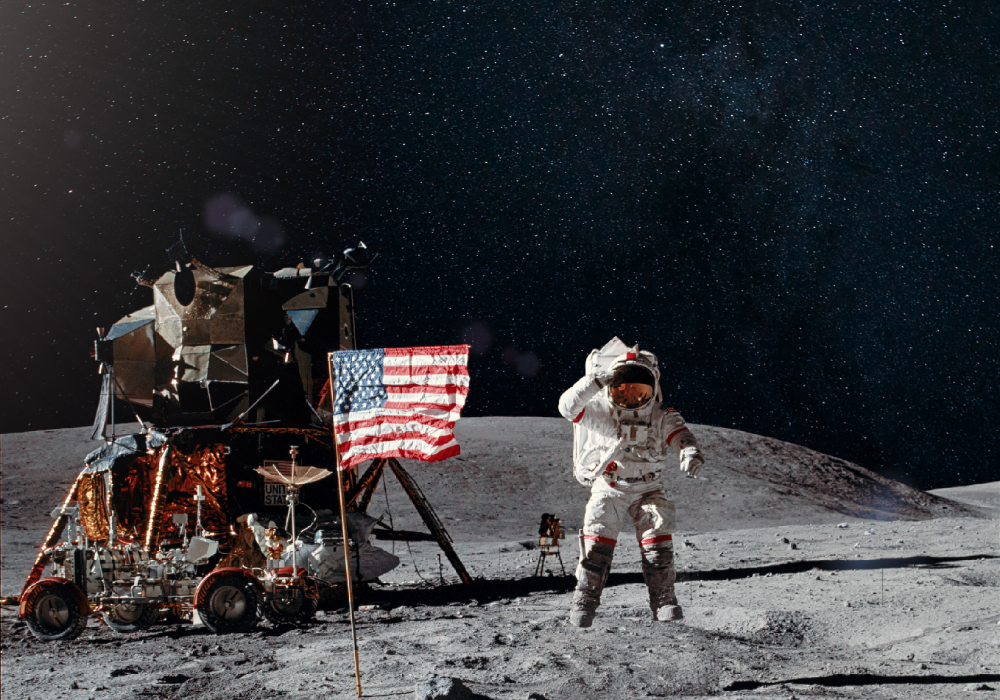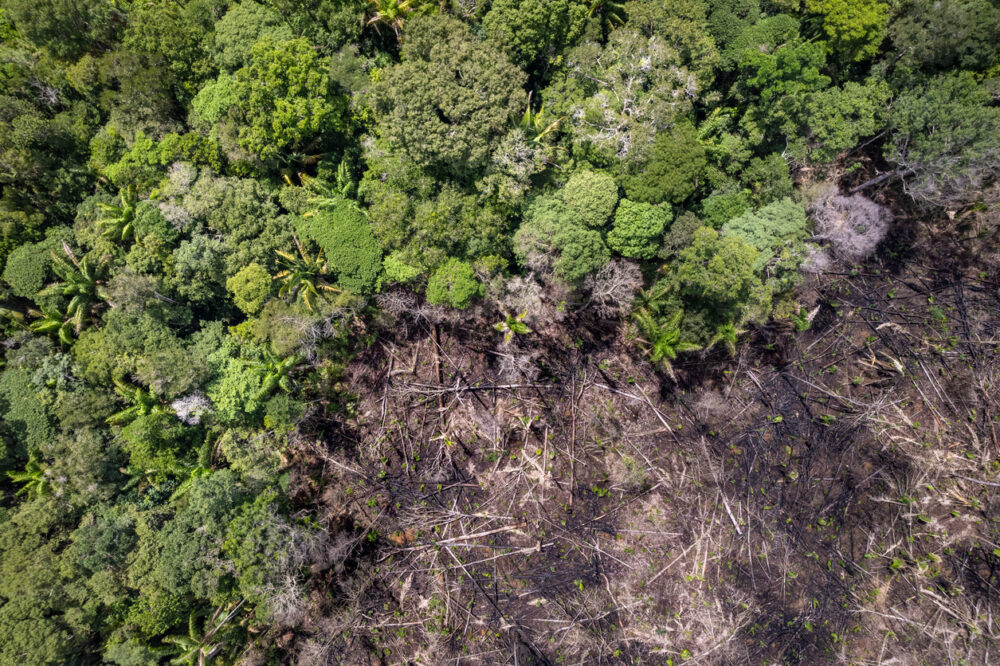The traits praised as masculine success are fueling environmental collapse.

Generations of men were taught that their worth came from what they could build, buy, and pass down. Providing wasn’t just a role—it was a full identity. The provider archetype was praised for being dependable, strong, practical. But no one stopped to ask what all that “providing” was actually costing. The house, the car, the steady income, the nonstop growth—these ideals weren’t built with the planet in mind.
This isn’t about blaming men for the climate crisis. It’s about seeing how gendered expectations shaped a culture of extraction, ownership, and overconsumption. Traits that once felt noble—stoicism, dominance, control—now show up as unsustainable habits in a world that’s hitting its ecological limits. Masculinity isn’t inherently harmful, but it’s been molded into something that rewards depletion over regeneration. If we want to survive the next chapter, we’ll have to rewrite what strength really looks like—and who we allow to embody it.
1. Ownership has become the default definition of success.

From cars to houses to land, men are taught that success means owning things outright. It’s a sign of stability, maturity, and independence. Leonie Hodel and her co-authors argue in Nature Sustainability that our culture’s emphasis on ownership goes hand-in-hand with identity and status, making us see land as something that is ours and we can do with as we please.
That in turn leads to the destruction of our planet and our shared future. Forests are bulldozed for suburbs. Cars clog cities. Mountains are leveled for the materials to build more. The planet can’t sustain a model where worth is measured by how much you control.
Ownership, when rooted in domination, leads to resource hoarding instead of sharing, extraction instead of stewardship. And it creates systems where those with the most land and assets have the most say in how they’re used—even if it hurts everyone else. True strength doesn’t mean taking more. It means knowing when to stop.
2. Providing financially is prioritized over providing sustainably.

Earning a paycheck has long been framed as the core of masculine identity. But in chasing income at all costs, entire industries have prioritized profit over planetary health. Jobs that “provide” often fund extraction, pollution, or the production of throwaway goods. Cara Daggett points out in SAGE Journals that fossil fuel jobs are often sold as tough, manly work—like dominating the land proves something.
This dynamic pressures men to stay in roles that harm the Earth simply because they’re seen as providers. Solar installer pays less than oil rig worker? Too bad. The provider narrative says keep the bigger paycheck. But providing shouldn’t mean poisoning. It should mean protecting—future food, clean water, breathable air. Reframing what it means to support a family could be one of the most radical climate solutions we have.
3. Control is mistaken for responsibility.

Taking charge is often seen as a sign of leadership—but when that control extends to land, labor, and ecosystems, it turns stewardship into domination. Edward Wageni of HeForShe highlights how dominant masculine ideals reward control and ownership, even when those behaviors lead to environmental collapse. But that mindset has enabled massive ecological overreach—from industrial farming to damming rivers to bulldozing habitats for convenience.
The Earth doesn’t need to be controlled. It needs to be respected. Responsibility isn’t about overseeing every outcome—it’s about knowing when to let go, when to trust systems older than you, and when to listen rather than fix. Real leadership in the climate era isn’t about command. It’s about humility.
4. Endless growth is treated as ambition, not addiction.

Ambition is admirable—until it becomes growth for the sake of growth. Men are taught to chase more: more money, more square footage, more recognition. That drive built skyscrapers and corporations. It also drained rivers, flattened ecosystems, and overshot planetary boundaries. The economy keeps demanding expansion. So does the masculine ego. But on a finite planet, infinite growth isn’t a strategy—it’s a death spiral.
The idea that you must constantly scale up is part of the problem, not the solution. At some point, success has to look like balance, not excess. Building a livable world means learning to stop where growth starts to cause harm.
5. Self-sufficiency is prized, but interdependence is what keeps us alive.

The image of the lone man, handling everything himself, is deeply romanticized. Rugged individualism gets praised while mutual aid gets sidelined. But climate collapse is not something anyone can face alone. We need collective infrastructure, shared resources, and social safety nets—not lone wolves with generators and private bunkers.
Hyper-independence often leads to isolation, overconsumption, and hoarding. It drives up personal resource use while eroding the communal bonds that make resilience possible. Interdependence isn’t weakness—it’s ecological reality. Every species survives through connection. Humans are no exception.
6. Competitiveness overshadows collaboration when we need it most.

From sports to business, men are taught to compete—to win, outperform, and dominate the field. That instinct doesn’t disappear in adulthood. It shows up in climate spaces, too: cities racing to out-green each other, companies fighting to corner the “sustainable” market, activists undermining each other for visibility.
But this isn’t a game. There’s no first place if the whole system collapses. Competition might drive innovation, but it also breeds secrecy, territorialism, and burnout. It slows down collective action and turns potential allies into rivals. The climate crisis doesn’t care who gets credit. It needs cooperation, knowledge-sharing, and coalition-building. We won’t out-hustle the apocalypse—but we might outlast it if we work together.
7. Stoicism normalizes burnout and emotional disconnection.

Stuff it down. Power through. Be strong. This version of masculinity trains men to suppress their emotional responses to pain, fear, and grief—even as the planet unravels. That emotional shutdown doesn’t just affect personal well-being. It blocks climate action.
You can’t mourn what’s been lost or fight for what matters if you’ve been taught to feel nothing. Climate grief is real. So is climate rage.
But when men are praised for stoicism, those emotions get buried instead of channeled into change. Vulnerability isn’t a liability—it’s part of being awake to what’s happening. The Earth doesn’t need more numbness. It needs more people willing to feel the weight—and still act anyway.
8. Conquest is still glorified in everything from tech to real estate.

From pioneering space to flipping houses, conquest is still sold as aspiration. Taking land, claiming credit, expanding territory—these are framed as masculine wins.
But the legacy of conquest is ecological collapse: stolen land, extracted resources, and systems built on dominance instead of care. The planet doesn’t need more conquest—it needs restoration. And restoration requires a different kind of strength: the courage to repair, to return, to give back more than you take. Reversing centuries of environmental harm won’t come from the same mindset that caused it. It’ll come from learning to live with, not over, the land.
9. Status symbols reward waste and overconsumption.

Big trucks. Luxury goods. Expensive steaks. For decades, certain products have been marketed as masculine status symbols—proof that you’ve “made it.” But these items often come with oversized environmental footprints. The bigger the car, the higher the emissions. The rarer the watch, the deeper the extraction. The more exclusive the item, the more likely it’s rooted in ecological harm.
When masculinity gets tied to consumption, restraint becomes emasculating. But living within limits is essential now. We need new symbols—ones that reflect care, resourcefulness, and ecological literacy. Not because status should matter, but because right now, the wrong kind of status is killing the planet.
10. Physical dominance has shaped how we treat nature.

The idea that “real men” conquer landscapes—cutting down trees, climbing mountains, building empires—has deeply shaped environmental policy and practice. Nature becomes something to tame, extract from, or fight against. This framing justifies everything from deforestation to large-scale damming projects under the guise of progress and mastery.
But nature isn’t an opponent. It’s a system we’re part of. The planet isn’t wild to be conquered—it’s wild because that’s what keeps it alive. Dominance isn’t resilience. And forcing ecosystems into submission only leads to collapse. The more we try to control nature, the more we unravel it—and ourselves.
11. Detachment from caregiving disconnects men from the Earth.

Care has been feminized, and in doing so, it’s been devalued. Men are often discouraged from nurturing relationships, communities, and environments. But the climate crisis is a caregiving crisis. It demands repair, regeneration, and attention—all traits men have been taught to suppress.
When care work is dismissed as soft or lesser, the work of protecting ecosystems, tending soil, and restoring damaged land becomes undervalued. We don’t just need scientists and engineers—we need stewards, gardeners, mentors, and healers. Reclaiming care as a masculine strength isn’t just cultural—it’s ecological. The future depends on it.
12. Fear of softness keeps men from joining climate movements.

Softness—empathy, gentleness, tenderness—is often viewed as weakness in traditional masculinity. But that softness is exactly what climate movements thrive on. The desire to protect what’s fragile. The instinct to respond to suffering. The ability to sit with grief and still show up. These aren’t side traits—they’re core survival skills now. When softness is mocked or shamed, men check out of movements that need them.
They stay silent, or skeptical, or stuck. But embracing softness doesn’t mean losing strength—it means expanding it. The planet isn’t asking for perfection. It’s asking for presence. And there’s nothing weak about showing up with your heart open.
